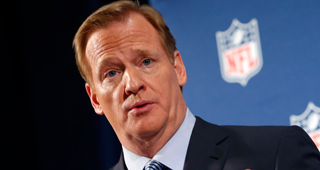Chris Borland described his retirement as a preemptive strike to preserve his mental health.
"If there were no possibility of brain damage, I'd still be playing," Borland said.
Borland shockingly announced his retirement after one successful season in the NFL with the San Francisco 49ers.
"I don't dislike football," he insists. "I love football."
Borland has come to view football as a dehumanizing spectacle, yet he wants to be respectful to former teammates and coaches still involved.
"Dehumanizing sounds so extreme, but when you're fighting for a football at the bottom of the pile, it is kind of dehumanizing," he said during a series of conversations over the spring and summer. "It's like a spectacle of violence, for entertainment, and you're the actors in it. You're complicit in that: You put on the uniform. And it's a trivial thing at its core. It's make-believe, really. That's the truth about it."
Days after Borland retired, the NFL emailed him demanding he take a drug test.
"I don't want to be a conspiracy theorist," he says. "I just wanted to be sure." Borland agreed to submit a urine sample to the NFL's representative, who drove in from Green Bay and administered the test in the Wisconsin trainer's room. Then he hired a private firm for $150 to test him independently. Both tests came back negative, according to Borland.
"I don't really trust the NFL," Borland said.
Borland describes playing football as thrilling but never fun.
"People make the analogy to war a lot, and I have two brothers in the Army," Borland said. "Getting a TBI [traumatic brain injury] and having post-traumatic stress from war, well, that's a more important cause. Football is an elective. It's a game. It's make-believe. And to think that people have brain damage from some made-up game. The meaninglessness of it, you draw the line at brain damage."


